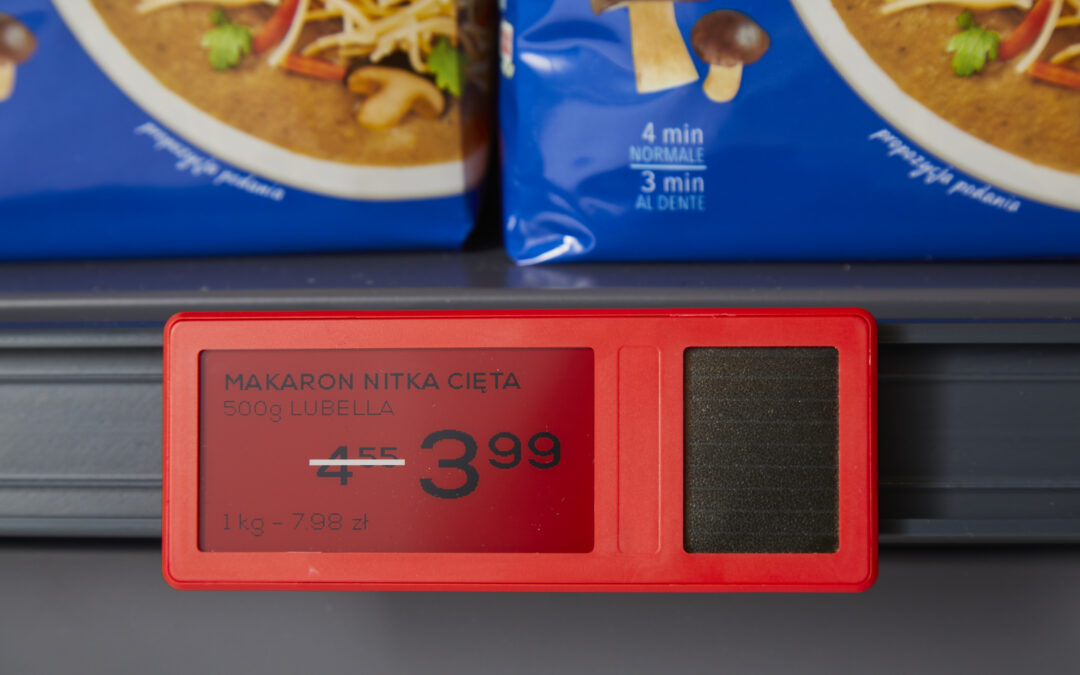A Polish company has launched electronic shelf labels powered by perovskite solar cells, which can be charged with indoor artificial lighting. They are already being tested at a petrol station shop in Warsaw
The technology allows chains to change prices across its shops centrally and simultaneously, helping to save employees time and reduce food waste. The firm is also working with Google on using the tech giant’s cloud technology and artificial intelligence to dynamically change prices.
“We are working on new generation photovoltaic modules,” said Artur Kupczunas, CEO of Saule Technologies, which launched the world’s first industrial production of perovskite solar panels this year.
The company produces thin, lightweight and flexible solar panels, which are inkjet coated with a layer of perovskite. When linked with e-ink displays, the technology can serve to optimise price labels in stores.
“Such labels can be managed centrally, but also remotely, saving employees time at the stations,” said Łukasz Porażyński, executive director for retail sales at Polish state oil firm Orlen, which is testing the technology at its petrol station in the Anin district in Warsaw.
Saule has also promoted its invention as a way of preventing food waste. “Retail chains will be able to rapidly reduce the prices of food products whose shelf life is ending,” said the company’s founder, Olga Malinkiewicz.
The system could also suggest products that are popular at the given moment so that they can be offered to customers, said Kupczunas.
“Along with the price, they can display text and graphics, thus serving as an effective platform for conveying additional messages: advertisements, special discount announcements, loyalty campaigns, and many more,” said the company, quoted by PV-magazine.com, a photovoltaic industry website.
The labels will be produced in different colours and shapes. Coming in sizes ranging between 1.54 and 12.5 inches (3.9 to 31.8 cm), their lifetime is estimated at 10 years.
Malinkiewicz invented the new form of solar cell, which uses perovskite – a calcium titanium oxide mineral composed of calcium titanate – in 2013. After years of product development and testing, her company opened a factory in the western Polish city of Wrocław in June.
Unlike standard silicon solar cells, perovskite ones can be mass-produced through roll-to-roll processing. They can also be light and colourful, as well as more versatile in their applications.
The first real-life use was a mobile phone charger operating under artificial light. The company has since also developed solar sunblinds, photovoltaic semi-transparent glass and charging stations for electric vehicles.
Main image credit: Saule Technology/Press Materials

Maria Wilczek is deputy editor of Notes from Poland. She is a regular writer for The Times, The Economist and Al Jazeera English, and has also featured in Foreign Policy, Politico Europe, The Spectator and Gazeta Wyborcza.




















